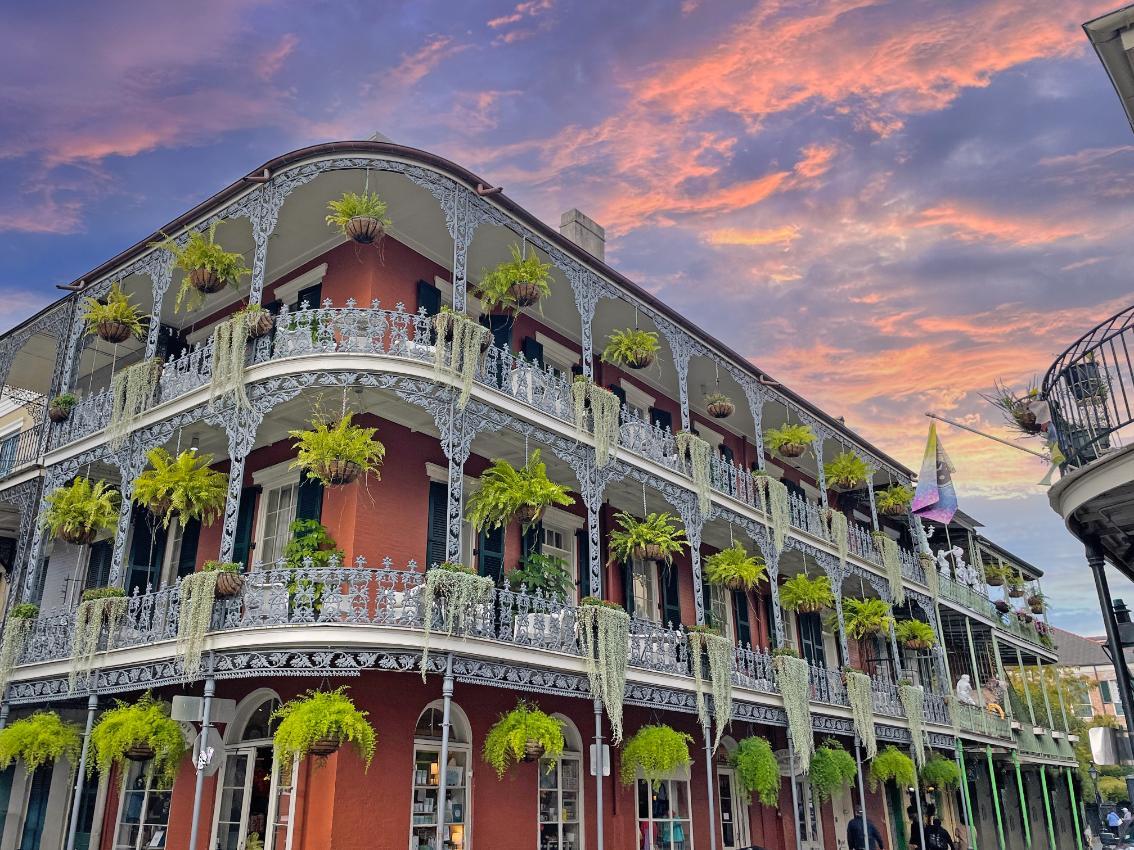

Can New Orleans—a city steeped in a unique history and culture, ravaged by Hurricane Katrina almost 20 years ago and grappling with the legacies of slavery, racism and segregation—escape its past? That’s the civic issue that a cadre of Longwood students will head south to the Big Easy to examine during the newest Brock Experience program, set to be piloted in the summer of 2025 and officially launch in 2026.
The New Orleans Brock Experience was announced this week as the latest in a growing series of immersive, citizenship-focused courses at sites around the United States. Through this interdisciplinary program, which will combine music, environmental science and the history of colonialism and civil rights, students will explore the many ways in which New Orleans defines and is defined by its history. They will confront an essential civic question: Does building toward the future require a community to embrace or to forget its past?
As they tour the vibrant streets of one of America’s most colorful cities, students will investigate how a community’s history is woven into a shared public memory.
Dr. Gregory Mole, assistant professor of history Tweet This
Dr. Gregory Mole, assistant professor of history, will develop and lead the program as part of a prestigious two-year faculty fellowship. Other faculty who will take part in the program are Dr. Mike Waddell, professor of music, and Dr. Ravi Sankar, assistant professor of environmental science and geography, as well as Cainan Townsend ’15, M.S. ’20, executive director of the Moton Museum.
“As they tour the vibrant streets of one of America’s most colorful cities, students will investigate how a community’s history is woven into a shared public memory,” said Mole. “They will immerse themselves in the syncretic traditions of Louisiana voodoo, hear notes of past harmony and discord as they sound through New Orleans jazz halls, and sample cuisines seasoned by the interactions of multiple cultures. They will stroll through iconic neighborhoods, uncovering a history etched into the very architecture and street plans.”
One of Longwood’s signature programs, Brock Experiences are a rotating offering of U.S.-based courses developed by faculty that study important societal issues of our time. They are funded through a generous gift of $5.9 million from Joan Perry Brock ’64 and her late husband, Macon Brock, in 2016. The Brock Experience in New Orleans will become part of a stable of courses already in place that include Yellowstone National Park to study resource management, Chesapeake Bay to study sustainability and San Francisco for two separate programs—one to study the intersection of place and voice and one to study the nature of our genes.
Mole, who specializes in French history as well as economic history, said the ideas for building the program came to him after reading an anthropological study of colonial New Orleans. A big focus of the program will be on New Orleans’ legacy of colonialism as well the role that marketing has played in the city’s history.
“It’s a place that very actively sells its past,” he said. “Students will see how a community markets its past, turning a profit by commodifying its heritage.”
All of the Brock Experience programs are modeled after the highly successful and popular Yellowstone National Park course, where students have studied natural resource management for more than a decade. Courses typically take place in the summer and involve travel to a place in the country to learn firsthand about an unresolved issue from a variety of perspectives.
This summer students will be traveling to Yellowstone and San Francisco for Brock Experiences.
“These kinds of courses can’t be found at any other college or university in the United States,” said Joshua Blakely, director of Brock Experiences for Transformational Learning. “This latest course will not only be an unforgettable experience for generations of Longwood students, but an important part of shaping new citizen leaders who look at unresolved issues in their own communities from different perspectives and strive to solve them.”
